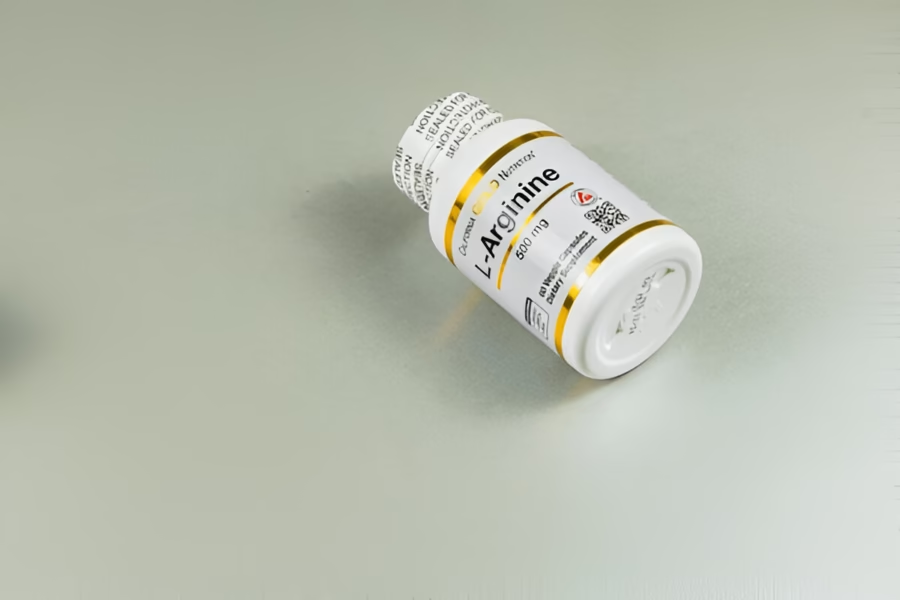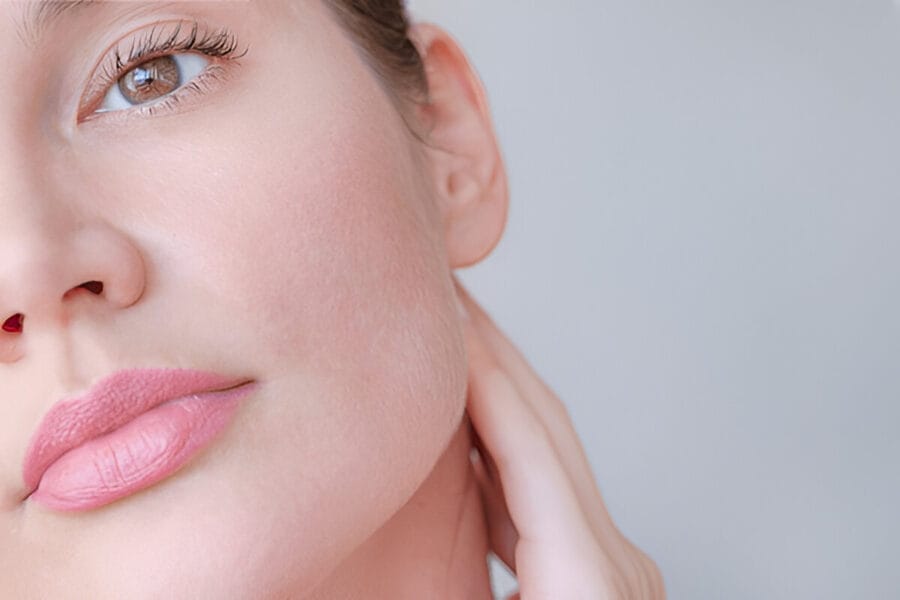Sensitive skin needs extra care and attention in skincare routines. Redness, irritation, or dry patches can all improve with the right product choices. Many people rely on hypoallergenic skincare to avoid flare-ups and discomfort. However, with so many products on the market, finding the best options for your skin can feel overwhelming. Don’t worry—this guide will help you choose the right hypoallergenic skincare products for your sensitive skin.
In This Article
- What Does Hypoallergenic Really Mean?
- Why Should You Choose Hypoallergenic Skincare?
- The Benefits of Hypoallergenic Products
- How to Choose the Right Hypoallergenic Skincare Products
- Hypoallergenic Makeup Brushes: A Vital Part of Your Routine
- Key Hypoallergenic Ingredients to Look For
- Building Your Hypoallergenic Skincare Routine
- Clearing Up Some Common Myths About Hypoallergenic Products
- Wrapping Up
What Does Hypoallergenic Really Mean?
If you’ve ever wondered what “hypoallergenic” truly means, you’re not alone. People often use this term, but many don’t fully understand what it signifies. Simply put, hypoallergenic products aim to reduce the risk of allergic reactions. These products include fewer ingredients that can cause irritation or allergic responses. Although no product guarantees zero reactions, hypoallergenic skincare focuses on gentleness, providing peace of mind for sensitive skin.
In Urdu, the term “hypoallergenic” is translated as “ہائپو الرجینک”. This means that these products are less likely to cause allergies or skin issues, making them ideal for individuals with more reactive skin.
Why Should You Choose Hypoallergenic Skincare?
Sensitive skin can be easily triggered by a variety of ingredients, from fragrances to harsh chemicals. If you frequently experience irritation, redness, or breakouts, hypoallergenic skincare can be a lifesaver. These products are often free from common irritants and formulated with ingredients known to soothe and calm the skin.
The Benefits of Hypoallergenic Products
- Reduced Risk of Skin Reactions: Hypoallergenic skincare is designed to be less likely to irritate or cause allergic reactions, providing a safer option for sensitive skin.
- Soothing and Gentle: These products are typically made with softer, more skin-friendly ingredients, offering gentle hydration and comfort.
- Versatility for Various Skin Types: Hypoallergenic products aren’t just for people with allergies—they’re great for anyone with sensitive or reactive skin, including those prone to conditions like eczema or rosacea.
How to Choose the Right Hypoallergenic Skincare Products
Now that we know why hypoallergenic skincare makes a smart choice, let’s explore the best way to choose products that suit your skin.
1. Pay Attention to Ingredients
When selecting skincare products, always check the ingredients list. Focus on labels that explicitly mention hypoallergenic cosmetics or skincare. These products typically contain fewer allergens and irritants. Many hypoallergenic skincare options feature soothing ingredients like aloe vera, glycerin, and chamomile extract—each offering gentle and calming benefits.
Even with hypoallergenic options, if you have specific sensitivities, it’s always wise to patch-test a product before using it on your face. This small precaution can save you from potential discomfort.
2. Opt for Fragrance-Free Products
Fragrances often trigger skin irritation. That sweet-smelling lotion might seem appealing, but its fragrance can cause redness and sensitivity. Choosing fragrance-free hypoallergenic skincare reduces the risk of irritation. Many brands also design hypoallergenic makeup brushes without fragrance, keeping your tools gentle on your skin.
3. Look for Products with Fewer Chemicals
One key feature of hypoallergenic skincare is its minimalist approach to formulation. These products often contain fewer chemicals, which means there’s less chance of triggering a reaction. For example, hypoallergenic makeup brushes are often made with synthetic fibers, which are less abrasive on the skin compared to natural bristles.
4. Patch-Test for Reactions
Although a product might be labeled hypoallergenic, your skin may still react to certain ingredients. Patch-testing is a simple way to determine if a product is safe for your skin. Apply a small amount of the product to an inconspicuous area (like the inner wrist or behind your ear) and wait 24-48 hours. If you don’t notice any irritation, it should be safe to use on your face.
Hypoallergenic Makeup Brushes: A Vital Part of Your Routine
Here’s the revised version with active voice:
“If you have sensitive skin, your makeup tools play an important role in your routine. “Many people overlook the value of hypoallergenic makeup brushes, but these tools actively reduce irritation. Soft, synthetic fibers allow hypoallergenic brushes to apply makeup gently and avoid causing friction or skin damage.”
Why Should You Use Hypoallergenic Makeup Brushes?
- Here’s the revised version with active voice:
- “Less Skin Damage: Synthetic fibers feel smoother than natural bristles, which reduces the risk of abrasion on sensitive skin.
- Easier to Clean: You can clean hypoallergenic brushes more easily, preventing the buildup of dirt, oils, and bacteria.
- Gentle Application: These brushes apply makeup evenly without irritating the skin, which is especially important for sensitive areas like the eyes and lips.”
Key Hypoallergenic Ingredients to Look For
Certain ingredients are known to be extra gentle and beneficial for sensitive skin. Let’s look at some of the most popular hypoallergenic ingredients you’ll want to find in your skincare routine.
1. Aloe Vera
Aloe vera is a star ingredient when it comes to calming and hydrating sensitive skin. It’s naturally soothing and helps to reduce inflammation, making it perfect for irritation-prone skin. Many hypoallergenic skincare products feature aloe vera as a key ingredient for its healing and cooling properties.
2. Chamomile Extract
Chamomile is known for its anti-inflammatory properties, which help calm the skin and reduce redness. Whether you have rosacea, eczema, or general irritation, chamomile can offer relief. Look for hypoallergenic skin care products that include chamomile to add a calming touch to your routine.
3. Glycerin
Glycerin is a natural humectant that helps retain moisture in the skin. It’s incredibly effective at keeping the skin hydrated without causing irritation, making it a must-have for sensitive skin. Many hypoallergenic products use glycerin to hydrate the skin while maintaining its natural barrier.
4. Hyaluronic Acid
Don’t be fooled—hyaluronic acid is a hydrating powerhouse even for sensitive skin. This lightweight ingredient helps draw moisture into the skin, keeping it plump and hydrated. Despite its potent moisturizing effects, it is gentle enough for sensitive skin types.
Building Your Hypoallergenic Skincare Routine
To build an effective skincare routine with hypoallergenic products, here are a few key steps to follow:
- Gentle Cleansing: Choose a gentle, fragrance-free cleanser that won’t strip your skin’s natural oils.
- Moisturizing: Always follow up with a hypoallergenic moisturizer to lock in hydration.
- Sun Protection: A hypoallergenic sunscreen is essential to protect your skin from harmful UV rays that can irritate and damage sensitive skin.
Clearing Up Some Common Myths About Hypoallergenic Products
Myth 1: Hypoallergenic Products Are Always Safe for Everyone
While hypoallergenic products are designed to minimize the risk of irritation, they’re not entirely foolproof. Everyone’s skin is different, and some individuals may still react to certain ingredients. Always patch-test before use.
Myth 2: Hypoallergenic Products Are Only for People with Allergies
Hypoallergenic skincare is great not only for people with known allergies but also for anyone with sensitive or reactive skin. These products are formulated to be more gentle, making them ideal for those prone to redness, dryness, or irritation.
Myth 3: All Hypoallergenic Products Are the Same
Not all hypoallergenic skincare products are created equal. Some may contain a few ingredients that could still trigger a reaction for certain skin types. Be sure to read the labels and choose products that align with your skin’s needs.
Ammore’s Beauty Tip: Enhance the performance of your hypoallergenic makeup brushes by spritzing them with a hydrating toner before use.

Wrapping Up
Finding the right hypoallergenic skincare for your sensitive skin is crucial for maintaining a calm, balanced complexion. With a little research, reading labels, and patch-testing, you can avoid irritation and discover products that truly work for your skin. Whether it’s hypoallergenic makeup brushes or a soothing hypoallergenic skincare routine, these gentle products can make a world of difference. Embrace the benefits of hypoallergenic skincare and let your skin feel its best!
References:



